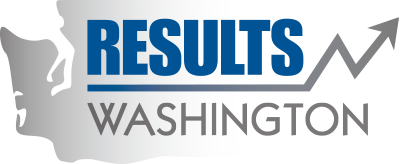Archived: Increase the percentage of high-risk food processing facilities successfully completing risk-based inspections
High risk foods are foods that are ready-to-eat, that can be eaten without any further cooking and may support the growth of bacteria that cause food poisoning. Examples of these types of foods are deli meats, dairy products, sprouts, egg products and shellfish. When companies produce these foods properly the risk to the public’s health is greatly reduced. That is why it is important to make sure the companies preparing these foods are in compliance with the state’s food processing rules and regulations.
In 2012, 90% of the high risk firms inspected in Washington were in compliance with food processing standards. In 2013, the number improved to 92%. In addition, that the same year we had more cases involving high-risk firms brought forward for compliance actions, resulting in more follow-up inspections. We also provided more technical assistance to firms, helping them stay in compliance and increasing the overall compliance rate. In the future we plan to continue providing this level of technical assistance, which should help us reach our goal of 95% compliance by 2020.
Our food safety inspections at high-risk food processing firms makes sure a management system in place to control those points in the manufacturing process where contamination is most likely to occur.
Our food safety managers present technical information at training events and conferences that are attended by prospective manufacturing firms. This information will help them implement sound management systems and to better understand the sanitary laws under which they need to operate.
Report any food-related illness you believe may have been caused by a contaminated processed food to your local health jurisdiction (LHJ). See the following link to find your LHJ (http://www.doh.wa.gov/AboutUs/PublicHealthSystem/LocalHealthJurisdictions.aspx).
Report any known sanitation problems involving a food processing facility to the WSDA Consumer Complaint Tool Free Line; 1-800-843-7890 or email foodsafety@agr.wa.gov.
Contact a firm directly with any quality or safety complaints that you may encounter.
